Bali is a true haven for vegans, offering an abundance of delicious dishes and culinary delights, all perfectly suited to a plant-based diet.
The number of restaurants, trendy cafes, and stylish coffee shops on the island continues to expand each year. Regardless of your dietary preference – whether it's veganism, raw food, or vegetarianism – Bali has an impressive variety of food options and eateries for everyone. You can enjoy delectable dishes from world cuisines at almost any time of day, depending on where you are staying on the island.
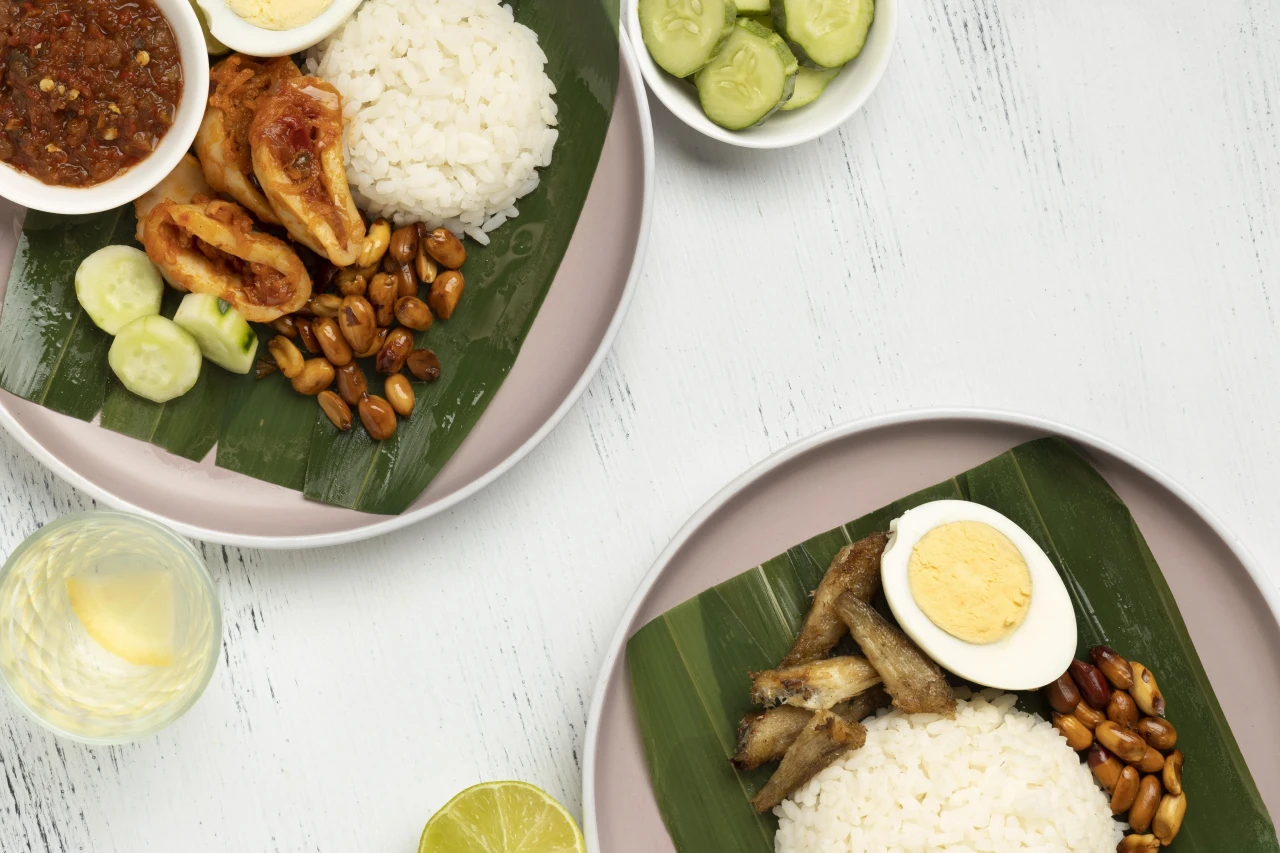
Like in many Asian countries, rice is the staple food for the locals in Bali, and the most popular dish is the famous nasi goreng (fried rice). This dish often comes with green beans, a fried egg, fish or meat, and always includes vegetables. Another interesting Balinese dish is gado-gado, a salad made from a mix of vegetables in a peanut sauce, sometimes with the addition of eggs and tempeh.
Bali is a paradise for people with all types of diets. The island is blessed with an incredible abundance of vegetables and fruits, which especially attracts those who love fresh, natural, and flavorful food. In local cafés, you can enjoy a large portion of a vegetarian meal for just $1-1.5.
All kinds of vegetables and exotic fruits can be found at the Balinese markets, which are definitely worth visiting. It's best to go early, around 7 a.m. (markets typically open at 5 a.m.). On the stalls, depending on the season, you can find mangoes, lychees, pineapples, rambutans, mangosteens, durian, jackfruit, sweet potatoes, avocados, and more. There are also seafood, meats, and ready-made sate (chicken or tofu skewers) that are grilled right on the market grounds and sold at very low prices.
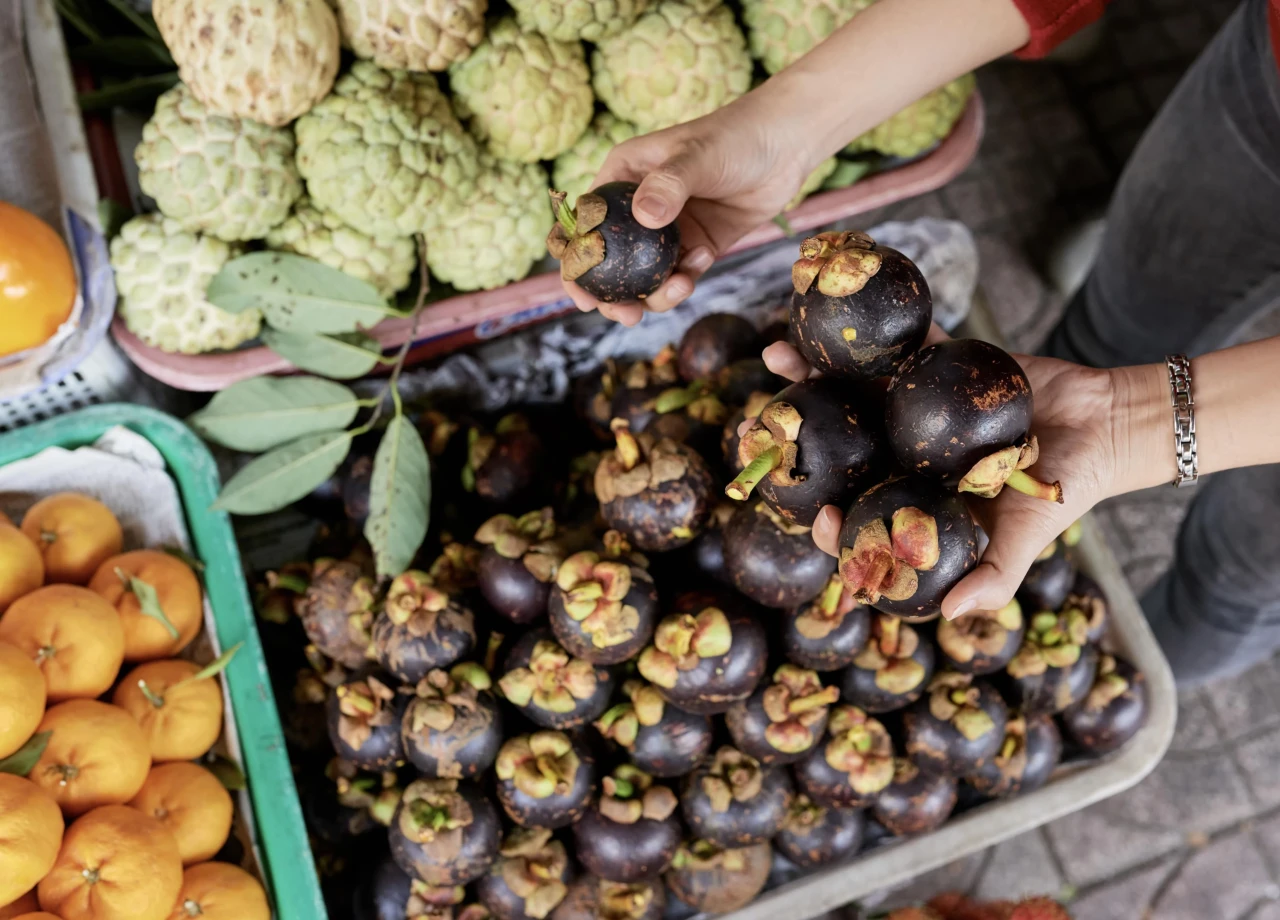
Although Balinese people enjoy meat, vegetables play an important role in their daily diet. Commonly used are bean sprouts, carrots, cabbage, leeks, edamame beans, jackfruit, and green beans. Soy-based products are often used as meat substitutes in Balinese dishes. For example, in bakso soup, which consists of noodles, rice chips, and large leaves of greens, tofu balls may replace meat. Soups are very popular on the island, with many varieties that include boiled eggs, celery, shallots, and cabbage. The authentic Balinese flavor comes from lime and chili.
Most local dishes can be adapted for vegetarians. The best way to explore Balinese cuisine is by visiting a *warung*. These small, local eateries offer authentic food at very affordable prices.
The word "warung" translates to "small shop" in Indonesian. However, in Bali, it specifically refers to small roadside eateries. Warungs vary in appearance – some look like simple huts with plastic chairs and a few tables, while others are more modern, with thatched roofs, Balinese woven decorations, and comfortable seating. Warungs are popular among locals and budget travelers alike, offering a variety of traditional Balinese dishes. Locals gather there to chat and eat, and the atmosphere is usually relaxed and friendly.
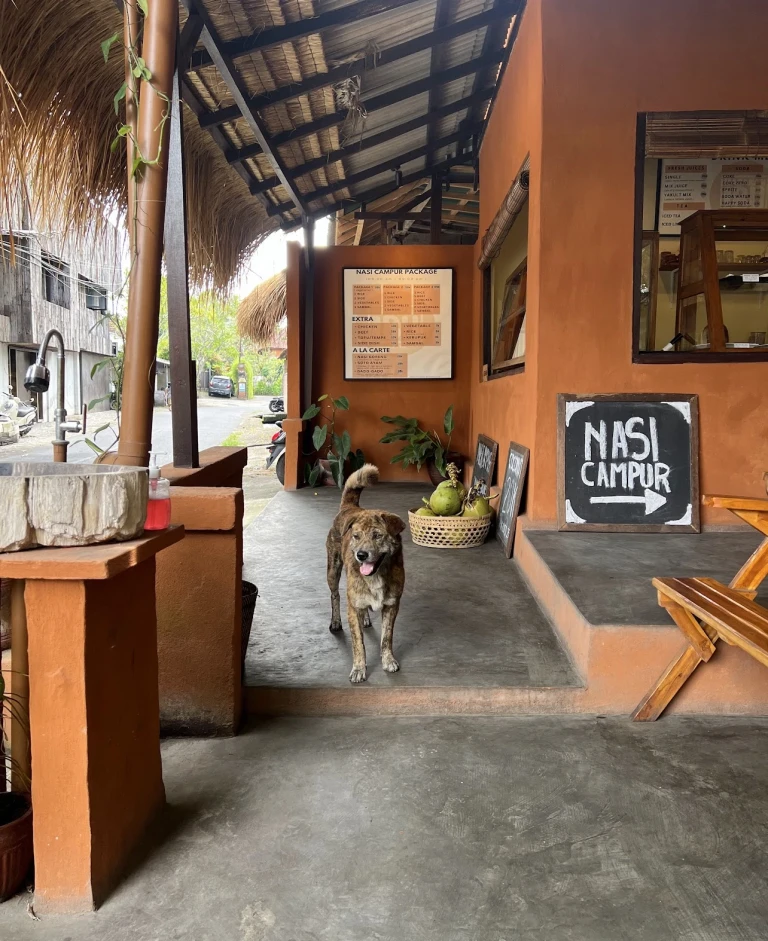
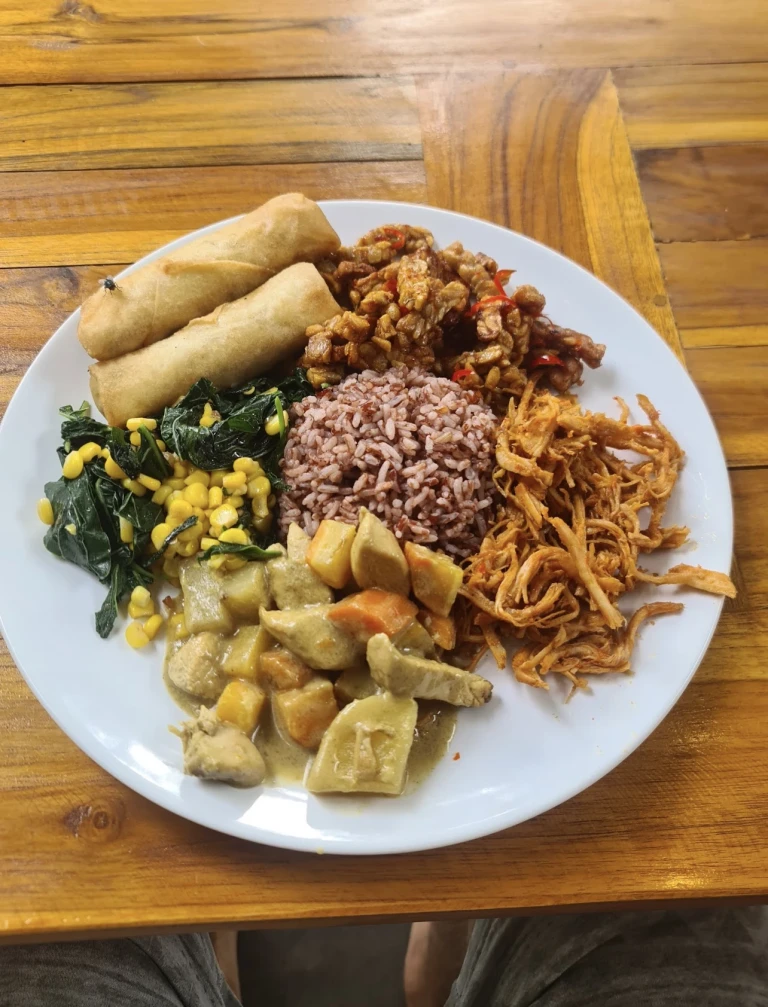
For Balinese people, it’s often easier to eat in these places than cook at home, as it is very affordable. Nowadays, many warung staff understand the word "vegan," though they may not speak English. You can simply ask "tidak ada daging, ikan, susu atau telur?" which means, "Does this contain no meat, fish, milk, or eggs?" Or you can say, "aku tidak akan daging, ikan, susu atau telur – aku vegetarian ekstrim" ("I don’t eat meat, fish, milk, or eggs – I am a strict vegetarian").
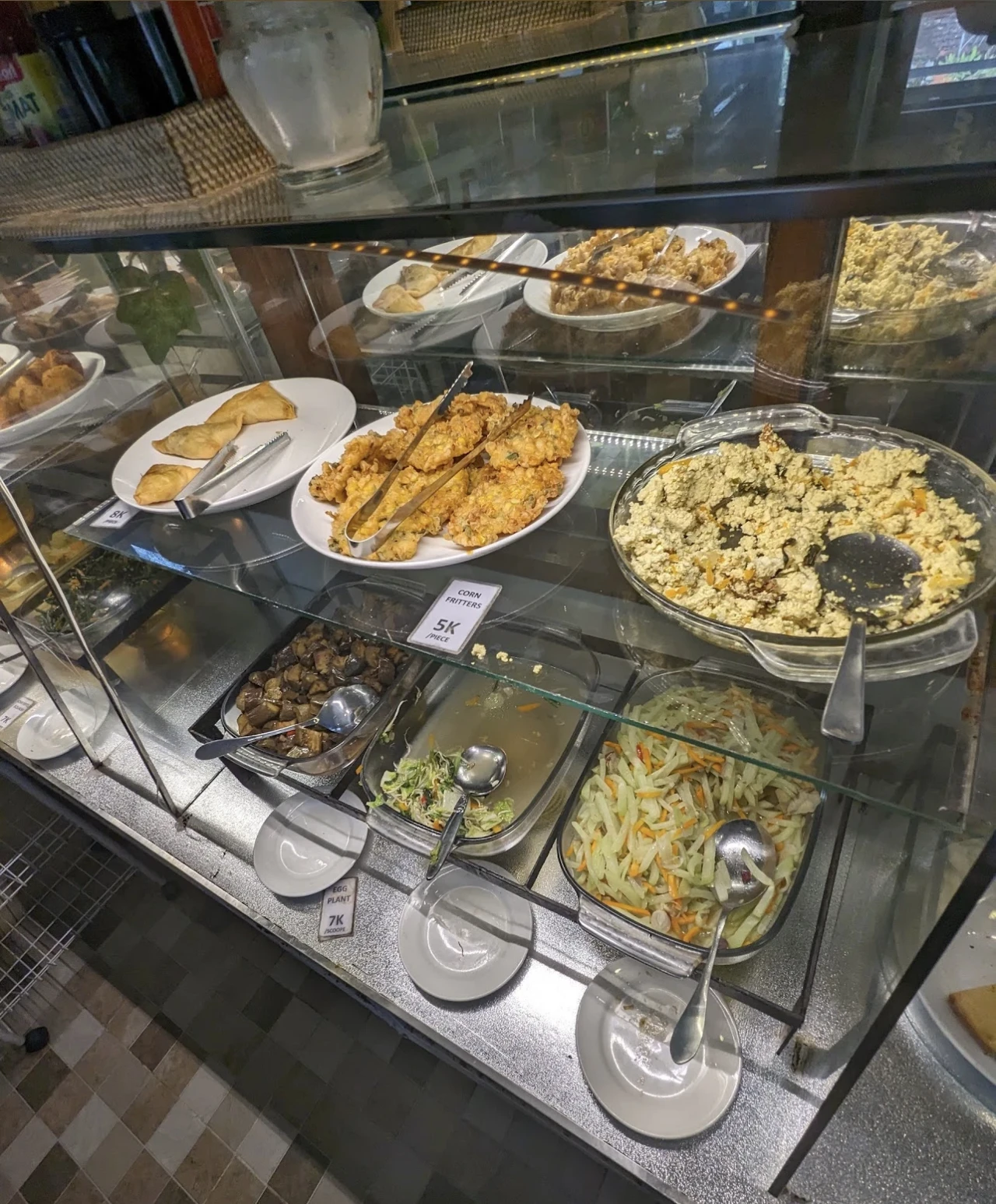
One thing to note: in most local warungs with street food, you are likely to encounter a generous amount of MSG (monosodium glutamate) in the dishes.
Here are some common vegetarian dishes that are usually suitable for vegetarians or vegans (but it’s better to double-check and specify that you don’t want eggs):
Nasi Campur Sayur
This is a dish of mixed rice served with various plant-based side dishes: fried greens, spicy tempeh, tofu, coconut curry, and sambal matah (a spicy Balinese relish made from raw shallots, chili, and lime juice).
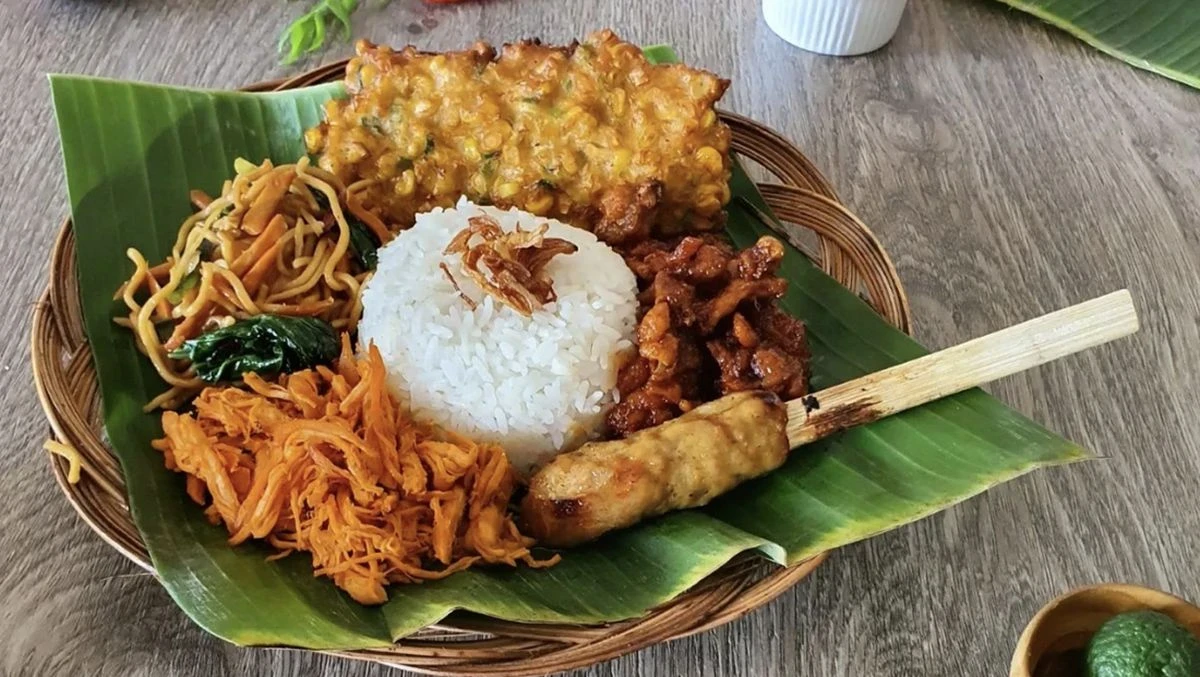
Gado-Gado
Gado-Gado is a classic Indonesian salad made from steamed vegetables such as cabbage, spinach, bean sprouts, and potatoes, served with a creamy peanut sauce. This flavorful dish can be found in many local cafés and eateries across Bali.
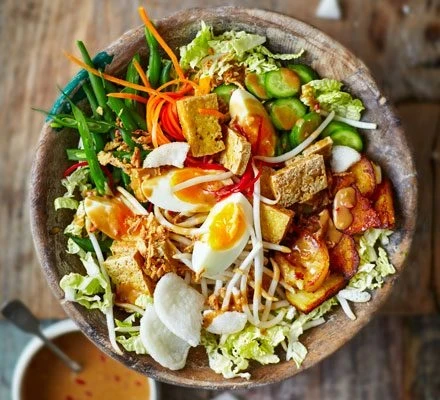
Sayur Urab
A traditional Balinese salad, Sayur Urab consists of mixed vegetables like long green beans, spinach, bean sprouts, and grated coconut. The salad is dressed with a flavorful mix of lime juice, shallots, chili, and coconut oil. It's a refreshing and light option, often available at traditional Balinese restaurants and warungs.
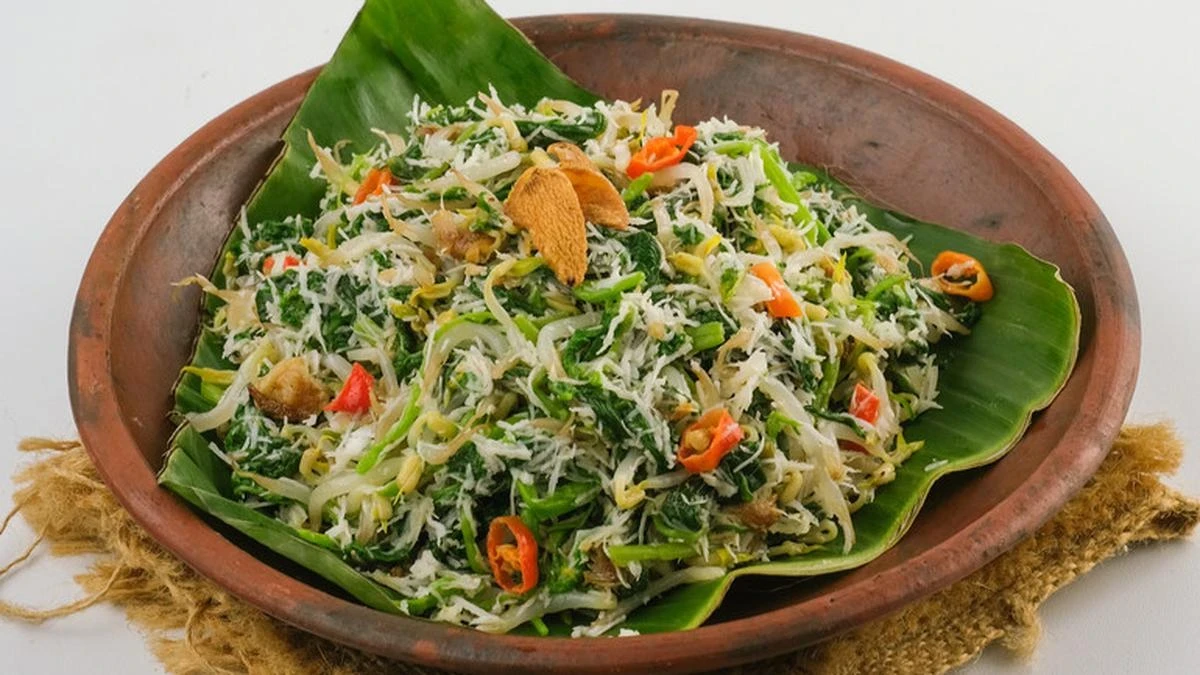
Tempe/Tofu Sate
Tempeh or tofu skewers (sate) are a popular vegan choice at street food stalls and local eateries across Bali. They are usually fried in oil and served with a savory dipping sauce.
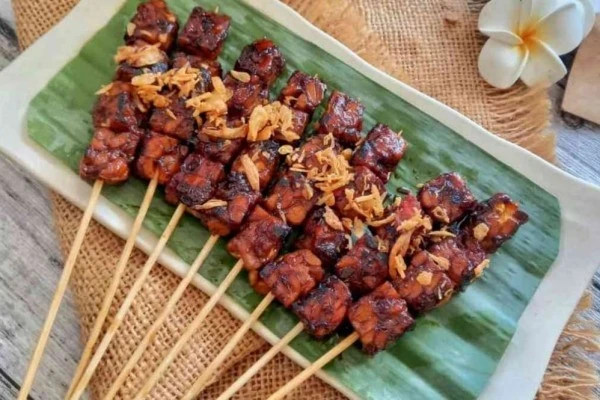
Nasi Goreng Sayur
This is a vegan version of the famous Indonesian fried rice dish, Nasi Goreng Sayur. It includes fried rice mixed with vegetables like carrots, peas, and cabbage, flavored with soy sauce, garlic, shallots, and chili. This aromatic and hearty dish is available at most local cafés and warungs.
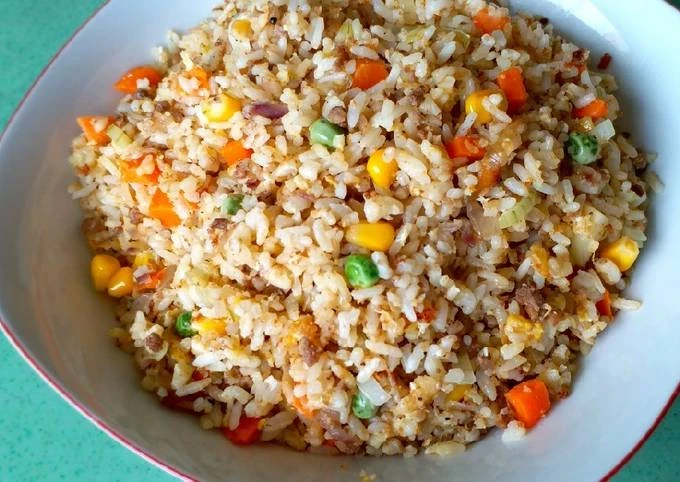
Bakso
This popular Indonesian vegetable soup consists of a hearty vegetable broth with tofu balls, mushrooms, cabbage, carrots, and noodles. A good vegan version of Bakso can be found at the Living World Mall food court.

Mie Goreng Tahu
A vegan variant of the classic Indonesian fried noodle dish, Mie Goreng Tahu features fried noodles with tofu, mixed vegetables, and Indonesian spices. It's a favorite choice for vegans dining at local warungs with street food.
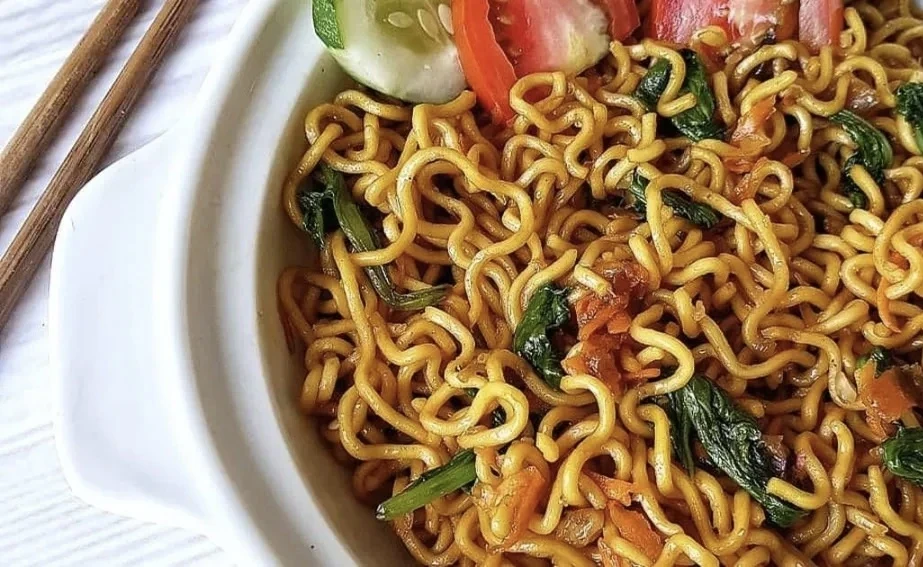
Sambal Tempe
Spicy tempeh cooked in a fragrant sambal sauce made from chili, garlic, shallots, and tomatoes is a delicious vegan option available in many places.
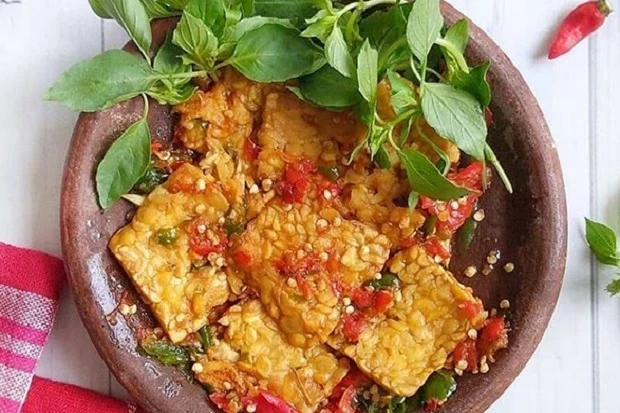
Pisang Goreng
Fried bananas are a very popular vegan dessert and snack in Bali. Served crispy and golden-brown, they make a delightful treat at local street food stalls or popular cafés.

Bubur Sumsum
A traditional Indonesian rice porridge made from coconut milk and rice flour, Bubur Sumsum is a creamy and comforting vegan dessert often flavored with pandan leaves and served with palm sugar syrup. This sweet dish is available in many local cafés and traditional dessert spots in Bali.

Best Vegan-Friendly Warungs in Bali
- - Wulan Vegetarian (Ubud): Offers a great selection of vegan dishes made with local ingredients for fresh and flavorful meals.
- - Green Warung (Ubud): A popular spot serving local food with a focus on European palates.
- - Local Warung Yayapo: Serves all traditional Indonesian dishes without meat.
- - Warung Local (Canggu)
- - WANA - Warung Cenana (Uluwatu): A vegetarian warung.
Popular European Vegan Cafés with Indonesian Cuisine in Bali
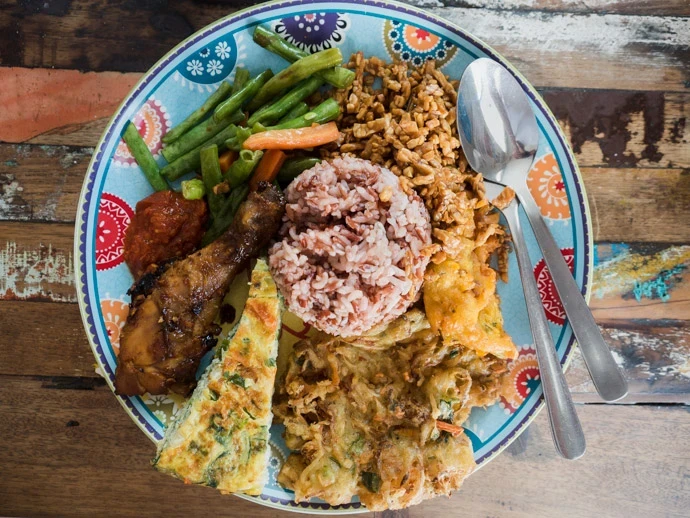
- - ZALI (Canggu): A vegetarian café with a focus on Lebanese cuisine.
- - The Shady Shack (Canggu): Offers a wide variety of options like salads, hearty rolls, burgers, and nourishing bowls.
- - Bali Buda: A well-known health-conscious café and store with a wide selection of vegan dishes. You can find fresh juices, salads, hearty bowls, and fragrant curries, with Indonesian options like vegetarian campur and nasi goreng. Locations: Canggu, Ubud, Denpasar, Uluwatu.
- - Moksa Ubud: A famous vegan fusion café in Ubud featuring global cuisine, including Indonesian-inspired dishes like Gado-Gado rolls or nasi goreng.
- - Zest: A popular bohemian restaurant in Ubud with a vibrant menu and excellent plant-based desserts.
- - Alchemy: A healthy food restaurant where you can build light breakfast bowls or hearty lunch bowls. First location opened in Ubud, with a second location in Uluwatu.
- - Sayuri Healing Food: Focuses on raw, vegan healing foods made from organic ingredients, offering detox juices, smoothies, burgers, and bowls.
- - Secret Spot (Canggu): A delightful plant-based restaurant.
- - Crate (Canggu): Famous for its coffee, smoothie bowls, and large salad portions with a view of the rice fields.
- - Clear Café (Ubud): A quiet café set in a lush garden with tropical plants, offering a vast menu of healthy vegan dishes for conscious living.
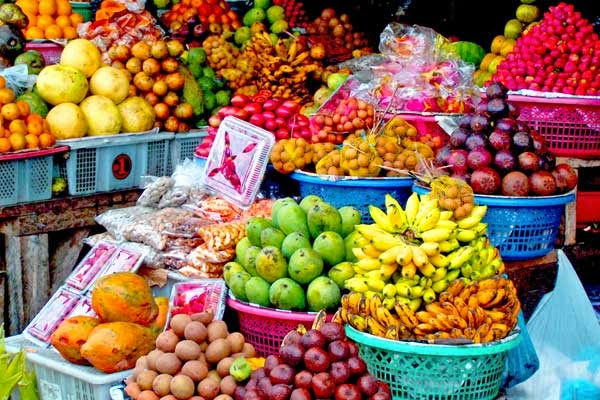
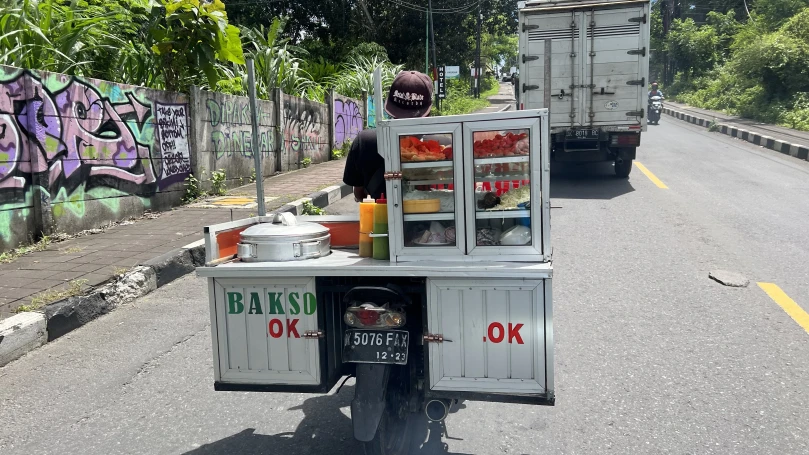
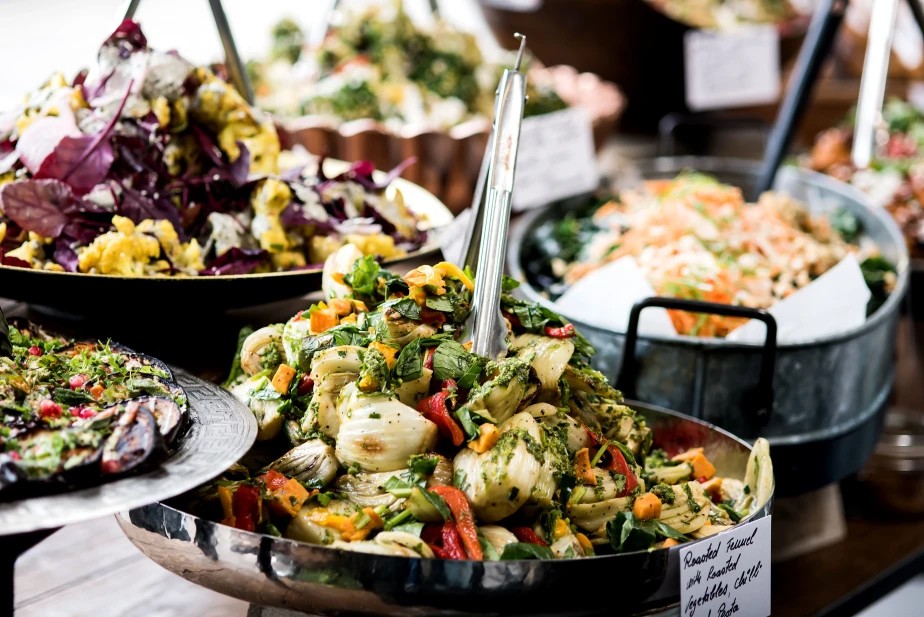
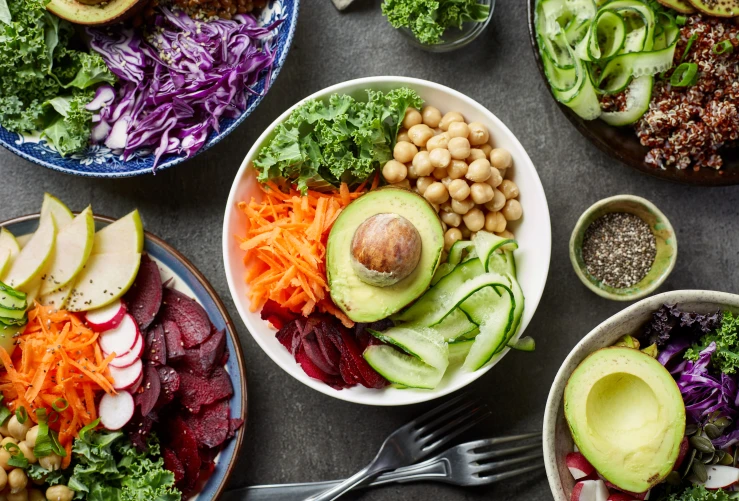
You can add one right now!